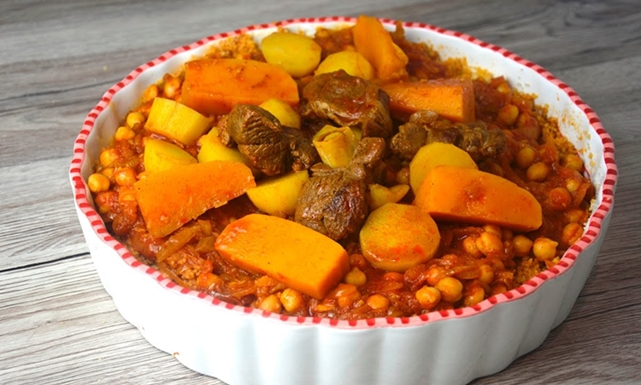Introduction: Libyan Cuisine
Libyan cuisine is a reflection of its diverse cultural influences and geography. The country’s coastal location along the Mediterranean Sea has impacted its cuisine heavily. Libyan cuisine is known for its use of freshly harvested vegetables, fruits, and grains, as well as an abundance of spices and herbs. Meat, seafood, and dairy products are also commonly used in Libyan cuisine.
Islamic Influence on Libyan Cuisine
The Islamic religion has a significant influence on the dietary habits of Libyans. Pork and alcohol are forbidden in Islam, and as a result, they are not used in Libyan cuisine. Halal food, meat that is prepared according to Islamic law, is commonly consumed in Libya. Additionally, fasting during the holy month of Ramadan is widely observed in Libya, during which time the consumption of food and drink is limited to before sunrise and after sunset.
Commonly Used Ingredients in Libyan Cuisine
Libyan cuisine utilizes a wide range of ingredients with a focus on fresh and locally sourced produce. Commonly used vegetables include tomatoes, carrots, onions, potatoes, and eggplants. Legumes like chickpeas and lentils are also featured prominently in Libyan dishes. Olive oil and garlic are commonly used for flavoring, while coriander, cumin, and chili powder add heat and spice. Lamb, beef, and chicken are the most commonly consumed meats in Libya, and seafood is also popular along the coast.
Traditional Libyan Dishes
Some of the most popular traditional Libyan dishes include couscous, which is made from semolina wheat and typically served with a meat or vegetable stew. Shakshuka, a dish consisting of eggs poached in a tomato sauce, is also a staple of Libyan cuisine. Bazeen, a dish made from flour, water, and salt, which is then formed into a ball and served with a meat or vegetable stew, is another traditional Libyan meal.
Dietary Restrictions in Libyan Cuisine
Libyan cuisine is generally considered to be healthful, with a focus on fresh, unprocessed ingredients. However, those with dietary restrictions should be aware of potential allergens in Libyan cuisine, such as nuts and wheat. Additionally, those with gluten intolerance should be cautious when consuming couscous, which is typically made from wheat semolina.
Conclusion: Libyan Cuisine and Health
In conclusion, Libyan cuisine is a flavorful and diverse cuisine that draws on a wide range of ingredients and cultural influences. The focus on fresh, locally sourced produce and unprocessed ingredients makes Libyan cuisine a healthy choice. However, those with dietary restrictions should be cautious and aware of potential allergens in Libyan cuisine. Overall, Libyan cuisine is a delicious and nutritious choice for those seeking to try something new.

